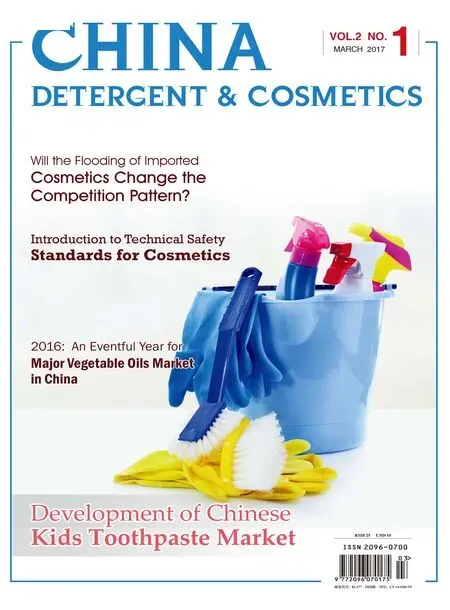China: Total Retail Sales of Cosmetics 2016 Reaches RMB 222.2 Billion
According to the National Bureau of Statistics (NBS),the total retail sales of consumer goods reached RMB 3,323.16 billion, with an annual growth rate of 10.4% in China in 2016. Total retail sales of cosmetics in China reached RMB 222.2 billion with an increase of 8.3%, lower than overall consumer goods growth.
China’s gross domestic product in 2016 rose 6.7% in real terms, down from 6.9 % in the previous year. Nominal GDP increased to about RMB 74.4 trillion.
Online retails sales of goods and services was RMB 5.16 trillion, increased by 26.2% year-on-year; the online retail sales of physical goods was RMB 4.19 trillion,increased by 25.6%, accounting for 12.6% of the total retail sales of consumer goods.
Alibaba has also spent $4.6 billion on a minority stake in appliances retailer Suning Commerce Group and is leading a $2.6 billion bid to make department store and shopping mall operator Intime Retail Group private. It also bought a stake in grocery chain Sanjiang Shopping Club last November.
A financial investment has not been included in the deal but the retail firms will share big data and logistics to integrate online and offline shopping.
Alibaba referred to the partnership as “new retail” to describe its aim to make the distinction between online and offline commerce obsolete, as internet users continue to migrate to mobile devices from desktop computers.
China’s traditional retail market has seen three years of continuous decline, most recently, the country's top 50 retailers reported a 0.5% in 2016.
“Traditional commerce needs to embrace innovation and change to thrive if they are to ride atop this new consumption trend,” said Ye Yongming, Chairman of Bailian Group.
“We need to be able to leverage technologies such as the Internet of Things, AI and big data to provide consumers with new and immersive shopping experiences across channels and product categories anytime and anywhere.”
 China Detergent & Cosmetics2017年1期
China Detergent & Cosmetics2017年1期
- China Detergent & Cosmetics的其它文章
- Are you ready to join in the ITP 2017 ?
- Environmentally Safe Surfactants in Cosmetic/Detergent Formulations:Risk of Microbial Contamination and Possible Solutions
- Regulatory Status of Wet Wipes Used on Human Body in Europe,United States, Canada, Australia and China
- Introduction to Technical Safety Standards for Cosmetics
- China National Standard—Test Method for Biodegradability of Surfactants (GB/T I5818—2006)
- For Beauty — JALA Group are Here to You
